Here’s what to know as prosecution rests case in the People of New York vs Donald J Trump
After four days of jury selection and 15 days of testimony from 20 witnesses, Manhattan prosecutors have rested their case in the People of New York vs Donald J Trump.
The prosecution’s case culminated with former attorney Michael Cohen’s four-day testimony, alleging that Mr Trump personally directed his “fixer” to pay hush money to an adult film star to block politically compromising stories of his affairs from reaching voters in the fragile weeks before the 2016 election.
Closing arguments in the former president’s historic criminal trial will begin next week after Mr Trump’s defense team presents its case.
Jurors will begin deliberations as soon as next week. A verdict in the first criminal trial against a current or former president could arrive before June.
Here are the key moments from the prosecution’s case:
‘Election fraud. Pure and simple’
On 22 April, the first day of trial, prosecutors plainly explained the stakes of the case to the 12 jurors and six alternates selected.
“This case is about a criminal conspiracy and a cover-up,” assistant district attorney Matthew Colangelo said in the prosecution’s opening statement.
“The defendant Donald Trump orchestrated a criminal scheme to corrupt the 2016 presidential election. Then he covered up that criminal conspiracy by lying in his business records, over and over and over again.”
Mr Trump is accused of falsifying business records by labeling a series of payments in 2017 to his then-attorney Michael Cohen as a “retainer” and “legal expense”. But prosecutors argue that Mr Trump – who was the president at the time – was actually reimbursing his “fixer” for a $130,000 hush money payment to adult film star Stormy Daniels, to stop her speaking out in the days before the 2016 election about an alleged sexual encounter with Mr Trump in 2006. Mr Trump has denied the affair.
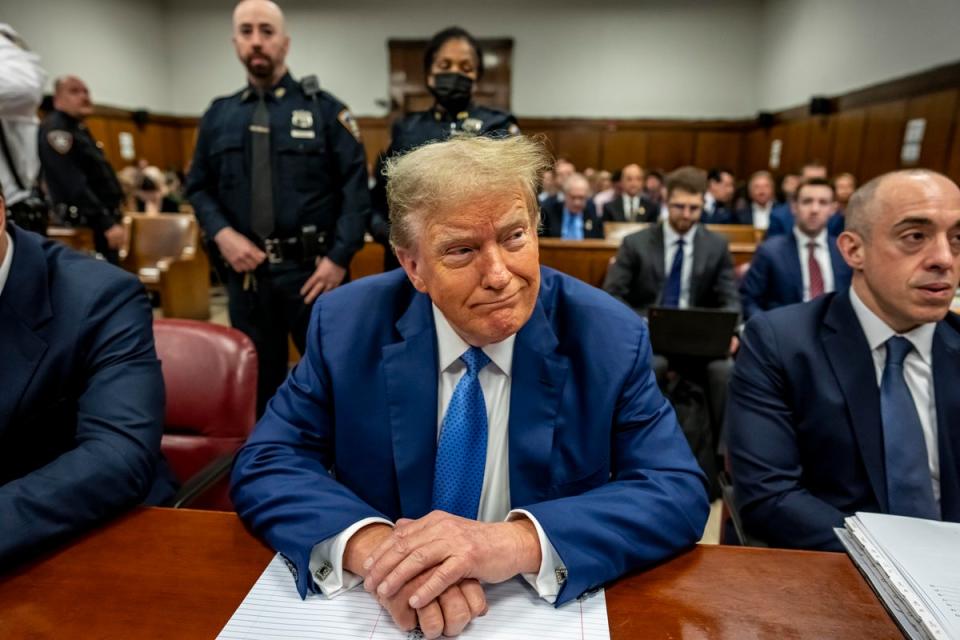
The payments followed similar hush money arrangements to keep stories of his alleged affairs out of the press while he was campaigning for the presidency, according to testimony and contracts revealed in court documents.
“This was a planned, coordinated, long-running conspiracy,” Mr Colangelo said. “It was election fraud. Pure and simple.”
The ‘catch and kill’ plot
The trial’s first witness – formerNational Enquirer publisher David Pecker – detailed a 2015 meeting at Trump Tower where Michael Cohen and Mr Trump outlined a plot to identify and purchase damaging stories about him – with no plans of publishing them.
Mr Pecker said he promised to be the “eyes and ears” for Mr Trump’s campaign – laying the groundwork for a series of schemes to bury stories about Mr Trump’s alleged affairs in the crucial months and weeks before Election Day in 2016.
That plan is central to prosecutors’ case that Mr Trump was desperate to keep bad press away from voters, with the campaign growing desperate to crush any other allegations involving women after the Access Hollywood tape was published one month before Election Day.
Access Hollywood and campaign ‘damage control’
Keith Davidson, an attorney for former Playboy model Karen McDougal as well as Stormy Daniels, thought Mr Trump’s campaign was over with the release of the Access Hollywood tape, on which Mr Trump bragged about grabbing women’s genitals in 2005.
Prosecutors described Mr Trump’s campaign as going into “damage control mode.”
Former White House communications director Hope Hicks also testified that the tape was a “damaging development” that threatened to derail the campaign in a busy and critical period before the election.
“With this Access Hollywood, he thought it was a disaster,” Cohen testified.
Mr Trump allegedly told him to “get control of it.”
Stormy Daniels’ carnal details
The adult film star testified for two days on the moments before, during and after her alleged sexual encounter with Mr Trump at a hotel in 2006 after meeting at a golf tournament in Lake Taho.
Speaking quickly, she painted a picture of the room and their “brief” and unremarkable sex. She alleged that Mr Trump didn’t wear a condom and described her shock and the feeling of blood rushing from her hands and feet at the sight of him on the bed.
“I just thought to myself, ‘Great, I put myself into this bad position,’” she said. “I felt ashamed that I didn’t stop it, that I didn’t say no.”
Defense attorneys routinely objected to her details – the judge even argued that they should have objected to more.
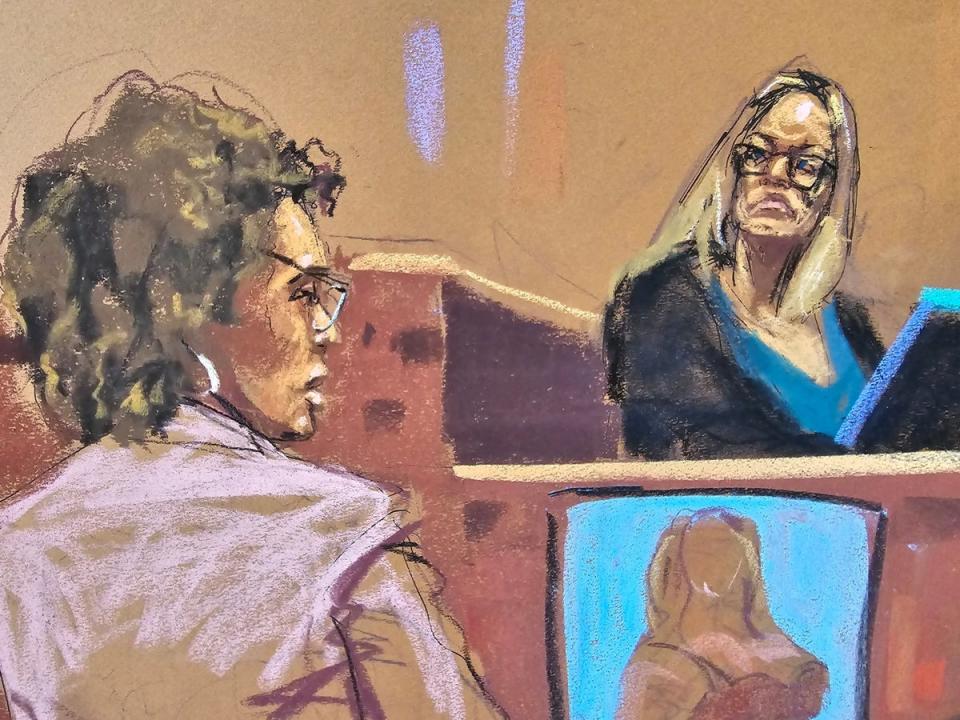
Prosecutors argue her testimony gave jurors crucial context to understand why the former president would risk felony prosecution to bury public knowledge of the allegations while he was campaigning for the presidency.
“Those details about what happened in that room – those ‘messy details’ – that is motive, that is Mr Trump’s motive to silence this woman in 2016 less than a month before the election,” assistant district attorney Joshua Steinglass said. “That is why Mr Trump tried so hard to prevent the American people from hearing about this.”
Stormy holds her ground
Mr Trump’s defense attorney Susan Necheles sought to frame Ms Daniels as a liar, extortionist, and fame-seeking opportunist. But the adult film star appeared relaxed, leaning on her arm and squinting at Ms Necheles as if what she was saying was nonsense, frustrating her line of questioning with quick-witted replies and refusals to accept their premise.
Unlike her porn films, Ms Daniels said: “I didn’t have to write this one.”
She added of her alleged tryst with Mr Trump: “If that story was untrue, I would’ve written it better.”
The hush money paper trail
After two weeks of testimony that dove into the salacious business of tabloid publishing, jurors finally saw the paper trail at the heart of the falsified records case: emails, accounting paperwork, handwritten notes, invoices and checks with Mr Trump’s giant, Sharpie-inked signature.
Former Trump Organization executives testified how they came up with the numbers for Cohen’s reimbursement payments and how those invoices were recorded and then mailed to Mr Trump in the White House.
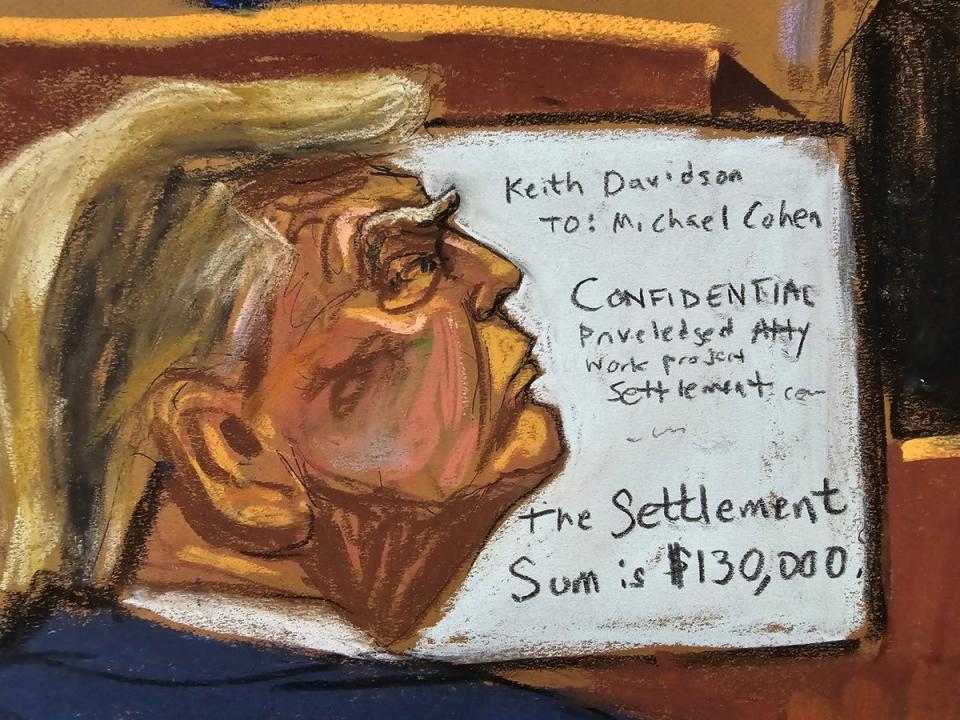
In his testimony, Cohen walked jurors through each of those documents, all of which he linked to the former president. He said he was instructed to write phony invoices that could conceal the true nature of the payments.
“To ensure that the story would not come out, would not affect Mr Trump’s chances of becoming president of the United States,” Cohen said.
Asked if he would have paid the money to Ms Daniels if Mr Trump wasn’t running for president, Cohen said no, and that he was only doing so at his direction.
Even after he was fully reimbursed at the end of 2017, Cohen continued to lie about the arrangement, “out of loyalty and in order to protect him,” he said.
Michael Cohen faces his history of lies
Jurors will have to ultimately decide whether to believe Cohen, the sole witness who can directly link Mr Trump to the hush money payments, after his credibility was tested by the former president’s defense attorneys in a fierce cross examination that painted him as a serial liar, motivated by fame and fortune.
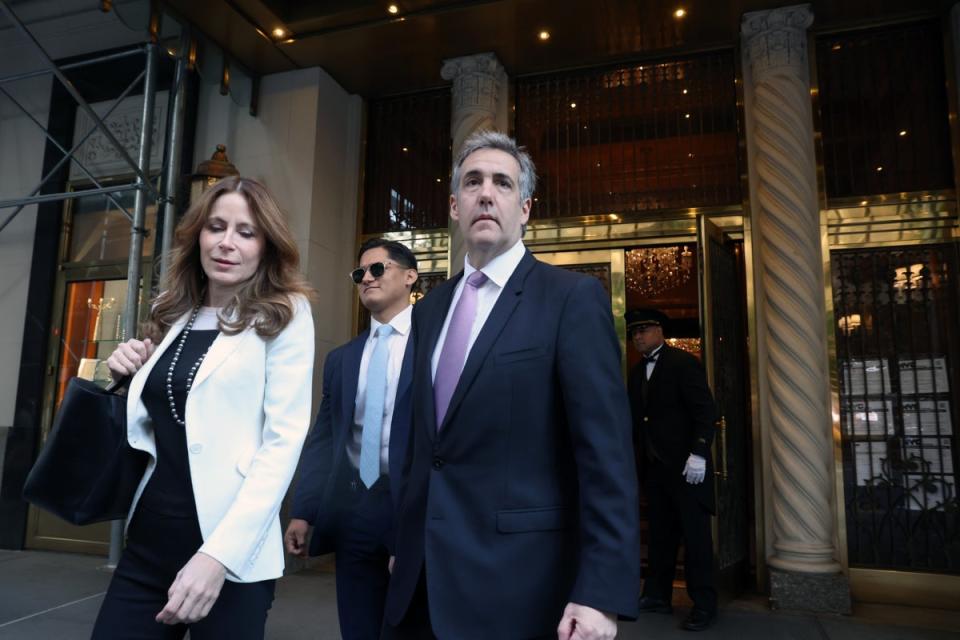
Prosecutors dealt with Cohen’s past convictions and deceit head-on, and the former fixer readily admitted he was a “bully” and a liar for his former boss. “But to keep the loyalty and to do things that he had asked me to do, I violated my moral compass, and I suffered the penalty, as did my family,” he said.
Trump hit with $10,000 fines – and threatened with jail
A trial gag order blocks Mr Trump from “making or directing others to make” public statements attacking witnesses, jurors, attorneys, court staff and their families. He was fined $9,000 for nine statements targeting Cohen and Ms Daniels, and another $1,000 for a statement undermining the jurors selected to hear the case against him.
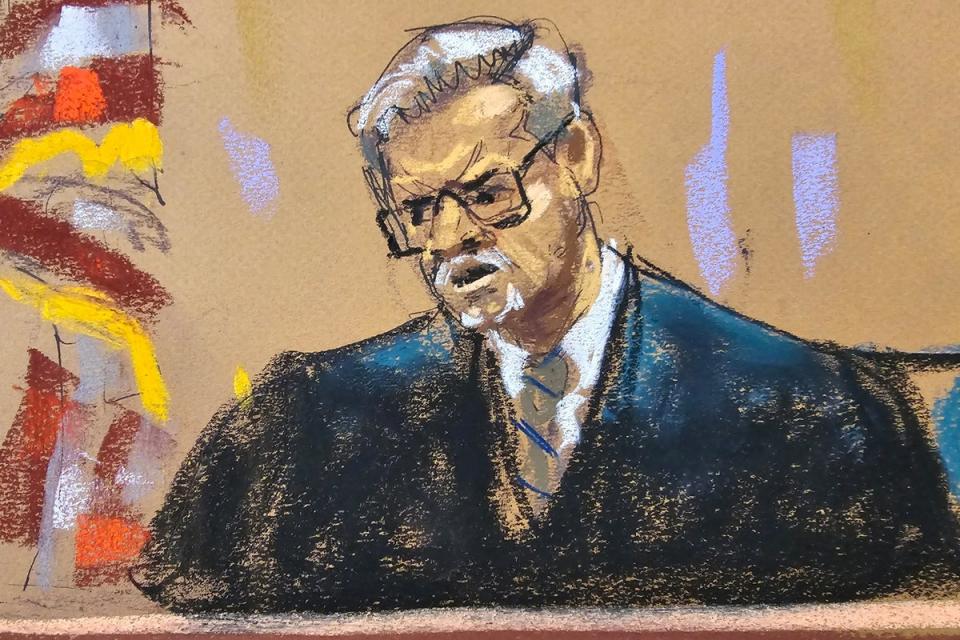
Judge Merchan noted that fines against the billionaire – who is backed by super PACs pumping millions of dollars into his legal defense – are likely not enough to deter him, and so he could be thrown in jail as a “last resort” if he continues to offend.
“But at the end of the day I have a job to do, and part of that job is to protect the dignity of the justice system,” Judge Merchan told him on 6 May. “Your continued violations … threaten to interfere with the administration of justice, and constitute a direct attack on the rule of law.”
Trump’s allies show up in court
After Mr Trump complained that his supporters weren’t allowed inside (they were) and couldn’t protest outside (they could, and did), several of his allies and Republican members of Congress heard his distress signal and joined him at the courthouse.
They stared down the judge, witnesses and jurors from inside the courtroom, then held press conferences outside trying to undermine the case and justice system altogether – giving Mr Trump the distraction he craved after sitting through hours of testimony against him.
Among them: Jeffrey Clark, a former Justice Department official who is among Mr Trump’s co-defendants in his election interference case in Georgia, and Boris Epshteyn, who is also criminally indicted in Arizona as part of an alleged plot to overturn that state’s election results.
Several vice-presidential hopefuls also put in an appearance, echoing Mr Trump’s complaints about the judge’s daughter and star witnesses that – if they had come out of the former president’s mouth – could land them and Mr Trump in serious trouble with the judge.

 Yahoo News
Yahoo News 
